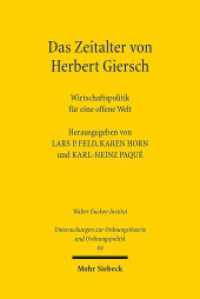Full Description
The papers in this volume, selected from those presented at the 20th International Conference on Chemical Education, cover topics ranging from fundamental to applied chemistry, such as arts and chemistry education, and the public understanding of chemistry.








